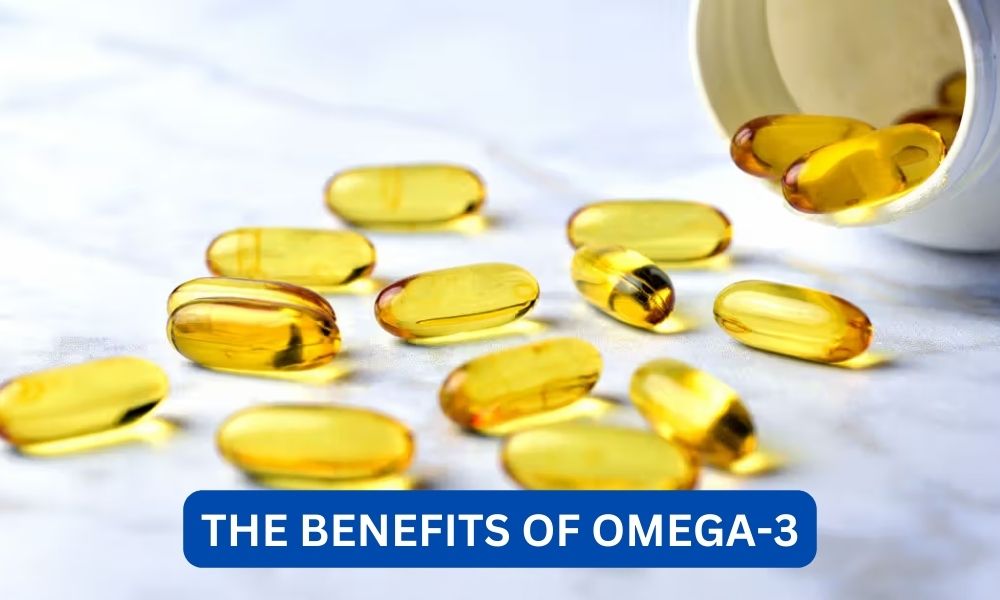Omega-3 fatty acids have been making headlines in the health and wellness world for their numerous benefits. From improving heart health to boosting brain function, these essential fatty acids have been touted as a must-have in any healthy diet. But what exactly are omega-3s and why are they so important? In this article, we will delve into the science behind omega-3s and explore the many benefits they offer.
Contents
What are Omega-3 Fatty Acids?
Omega-3 fatty acids are a type of polyunsaturated fat that are essential for our bodies to function properly. They are called “essential” because our bodies cannot produce them on their own, so we must obtain them through our diet. There are three main types of omega-3s: alpha-linolenic acid (ALA), eicosapentaenoic acid (EPA), and docosahexaenoic acid (DHA). ALA is found in plant-based sources such as flaxseeds, chia seeds, and walnuts, while EPA and DHA are primarily found in fatty fish like salmon, tuna, and mackerel.
Omega-3s are crucial for our overall health as they play a role in various bodily functions. They are a major component of cell membranes and are involved in the production of hormones that regulate blood clotting, inflammation, and the contraction and relaxation of artery walls. They also have anti-inflammatory properties and are essential for brain and eye development.
Read:What are the health benefits of dark chocolate?The Benefits of Omega-3 Fatty Acids
Now that we understand what omega-3s are and why they are important, let’s explore the many benefits they offer.
1. Improved Heart Health
One of the most well-known benefits of omega-3 fatty acids is their ability to improve heart health. Studies have shown that consuming omega-3s can help lower blood pressure, reduce triglyceride levels, and decrease the risk of heart disease and stroke. In fact, a meta-analysis of 17 studies found that consuming omega-3s was associated with a 14% lower risk of heart disease.
Omega-3s have also been shown to have a positive effect on other risk factors for heart disease, such as reducing inflammation and improving the function of blood vessels. This is important because chronic inflammation and impaired blood vessel function are major contributors to heart disease.
2. Brain Function and Mental Health
Omega-3 fatty acids are essential for brain function and development. DHA, in particular, is a major component of brain cell membranes and is crucial for the growth and maintenance of brain cells. Studies have shown that consuming omega-3s can improve cognitive function, memory, and mood.
In addition, omega-3s have been linked to a reduced risk of depression and anxiety. A study of over 150,000 people found that those who consumed the most omega-3s had a 17% lower risk of depression compared to those who consumed the least. Another study found that supplementing with omega-3s helped reduce symptoms of depression and anxiety in pregnant women.
Read:What are the benefits of vitamin e3. Reduced Inflammation
Inflammation is a natural response by our bodies to protect us from infection and injury. However, chronic inflammation can lead to various health problems, including heart disease, cancer, and autoimmune diseases. Omega-3 fatty acids have anti-inflammatory properties and can help reduce inflammation in the body.
A study of over 1,000 people found that those who consumed the most omega-3s had lower levels of inflammatory markers in their blood. Another study showed that supplementing with omega-3s helped reduce joint pain and stiffness in people with rheumatoid arthritis, an autoimmune disease characterized by chronic inflammation.
4. Eye Health
DHA, one of the main types of omega-3 fatty acids, is a major structural component of the retina, the part of the eye that senses light. Studies have shown that consuming omega-3s can help prevent age-related macular degeneration, a leading cause of blindness in older adults. Omega-3s have also been linked to a reduced risk of dry eye syndrome, a common condition that causes discomfort and vision problems.
5. Pregnancy and Early Childhood Development
Omega-3 fatty acids are crucial for the development of the brain and eyes in infants. DHA, in particular, is important for the growth and function of the brain and eyes during pregnancy and early childhood. Studies have shown that pregnant women who consume omega-3s have a lower risk of preterm birth and their babies have better cognitive and visual development.
Read:what are the benefits of moringaIn addition, children who consume omega-3s have been shown to have better communication and social skills, as well as a reduced risk of ADHD and other behavioral problems.
How to Incorporate Omega-3s into Your Diet
Now that we know about the many benefits of omega-3 fatty acids, the next question is how to incorporate them into our diet. The American Heart Association recommends consuming at least two servings of fatty fish per week to get an adequate amount of omega-3s. However, if you don’t eat fish or are vegetarian/vegan, there are other options.
Plant-based sources of omega-3s, such as flaxseeds, chia seeds, and walnuts, contain ALA, which our bodies can convert into EPA and DHA. However, the conversion rate is low, so it may be beneficial to supplement with an algae-based omega-3 supplement, which contains EPA and DHA derived from algae.
If you do choose to supplement, it’s important to choose a high-quality supplement from a reputable brand. Look for supplements that have been third-party tested for purity and potency.
Conclusion:
Omega-3 fatty acids are essential for our overall health and offer numerous benefits, from improving heart health to boosting brain function. They are found in fatty fish, as well as plant-based sources like flaxseeds and chia seeds. If you don’t consume enough omega-3s through your diet, consider supplementing with a high-quality omega-3 supplement. By incorporating omega-3s into your diet, you can reap the many benefits and support your overall health and well-being.









